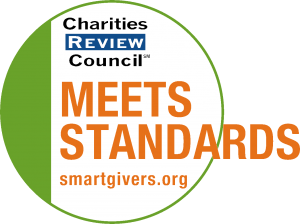Impact and Programs
Accomplishments
Together with our network of over 200 hunger relief partners, The Food Group distributed over 7.6 million pounds of food in fiscal year 2022 (10/1/21 – 9/30/22).
Agency / Emerging Partners
Last year The Food Group made multiple programming enhancements. For example, we provided free food to BIPOC-led organizations and partners who serve primarily communities of color. In addition, we offered quarterly capacity building workshops to our network of partners on topics such as values-based fundraising and how to recruit diverse volunteers. Finally, we established a process to provide essential infrastructure, such as coolers and freezers, to our partners so that they can distribute more healthy, fresh food in their communities.
Affordable Grocery
With respect to our Affordable Grocery programming, The Food Group has proactively added sites. We now have 26 active Twin Cities Mobile Market (TCMM) sites and 33 active Fare For All sites. In addition, TCMM has implemented a new schedule that allows us to visit each stop on a weekly basis, as compared to our previous schedule of once per month.
Big River Farms
26 farmers completed the core Farmer Education program during the 2022 growing season, along with over 450 one-time class attendees/farm team members. Of the 26 core farmers, cultures represented included Somali, Sudanese, Liberian, Hmong, Black, Native American, East Indian, Latino, and white. Over 90% of farmers enrolled in the program were farmers of color, and over 70% were women.
Current Goals
The Food Group is committed to the following goals: distributing culturally connected foods, honoring food sovereignty, and sourcing locally.
Culturally connected foods. We were the first food bank in Minnesota to focus on culturally connected foods, products that are often more expensive and harder to come by for our partners, but that are in high demand by our diverse community. Our Cultural Equity Food Program currently provides as an assortment of Latine, Asian, Halal, and Indigenous foods free of charge to our partners.
Honoring food sovereignty. Over the past two years, The Food Group has built up our efforts to address food disparities and honor food sovereignty in Tribal communities. Based on feedback from these partners, we have expanded our product mix to include bison, wild rice, walleye, maple syrup, and other Indigenous foods, and prioritized making these products available free of charge to Indigenous-led and serving partners. We have also invested in relationships with Indigenous vendors to source these products.
Sourcing local. The Food Group uses our institutional buying power to support small, local businesses, prioritizing those run by people of color. In 2022, we sourced products for our hunger relief and affordable grocery programs from 53 local vendors, three-quarters of whom were led by people of color.
Community or Constituency Served
Hunger Relief
Over 90% of our food shelf partners are located in the Twin Cites metro with a focus on underserved BIPOC communities. Recent data from a survey completed by Imagine Deliver indicates that approximately 28% of food shelf users identified as Black or African American, 27% as White, 25% as Hispanic or Latine, 11% as Asian, 7% as American Indian or Alaska Native, and 2% as “Other.”
Affordable Grocery
All are welcome to use our Fare for All program; however, we know from experience that most shoppers purchase food to supplement food shelf usage and/or their budget for groceries. With respect to race/ethnicity, the majority (88%) of Fare For All shoppers are White.
The majority of Twin Cities Mobile Market locations are at subsidized housing sites. Other sites include a program for people experiencing homelessness and other areas with high levels of poverty. The majority of those served by Twin Cities Mobile Market are either Black (46%) or White (36%).
Big River Farms
26 farmers completed the core Farmer Education program during the 2022 growing season, along with over 450 one-time class attendees/farm team members. Of the 26 core farmers, cultures represented included Somali, Sudanese, Liberian, Hmong, Black, Native American, East Indian, Latino, and white. Over 90% of farmers enrolled in the program were farmers of color, and over 70% were women.
Geographic Area Served
FOOD SHELF SUPPORT:
Anoka, Beltrami, Carver, Dakota, Hennepin, LeSueur, Pierce (in Wisconsin), Pine, Polk (in Wisconsin) Ramsey, Renville, Rice, Scott, Sherburne, St. Croix, St Louis, Washington, Wright
TWIN CITIES MOBILE MARKET:
Hennepin, Anoka, and Ramsey
FARE FOR ALL:
Anoka, Blue Earth, Carver, Chisago, Dakota, Goodhue, Hennepin, McLeod, Mille Lacs, Morrison, Ramsey, Rice, Sherburne, Stearns, Wabasha, Washington, Wright
BIG RIVER FARMS:
Washington County
